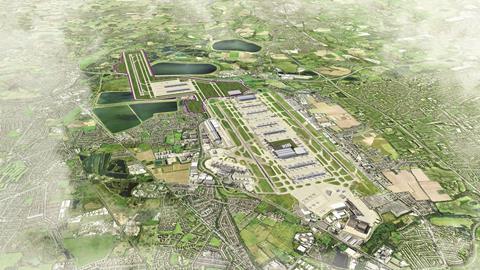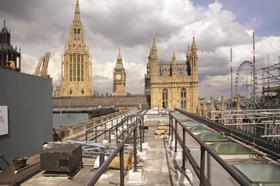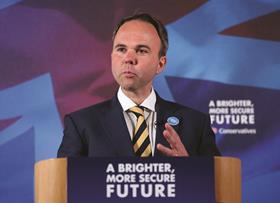As well as outright failures there were a number of less dramatic setbacks, delays and disappointments on key projects in 2017

As well as outright failures there were a number of less dramatic setbacks, delays and disappointments on key projects in 2017, which conspired to somewhat sour the mood.
The first was the housing white paper – published in January and billed as a once-in-a-generation opportunity to fix the UK’s broken housing market. While it did a welcome job of reversing the government out of previously unpopular policies such as Starter Homes, it was widely criticised for being too weak, focusing on technocratic planning tweaks rather than big-ticket changes. Then the snap election brought big delays to the roll-out of even those measures the white paper did contain, while the housing minister who had driven it through, Gavin Barwell, lost his Croydon Central parliamentary seat.

However, if the white paper scored an underwhelming 5/10 from the industry, other disappointments were on the way. Probably the biggest concerned Heathrow, for which 2017 was supposed to be the year that parliamentary approval for the third runway was secured. However, the snap general election put paid to hopes of that, while revised economic impact estimates and a further consultation have given ammunition to Heathrow’s opponents. The parliamentary vote is now expected next year, but with the Labour Party having serious reservations about the project it is by no means certain which way the vote will go.
Progress on the planned fleet of new-build nuclear power stations supposed to follow after the construction of Hinkley was also a worry. While work on Hinkley kicked off in earnest, the two developers behind the next power stations, at Moorside and Wylfa, made clear they either planned to sell their developments or needed more investment to proceed. Nugen, the Moorside developer, delayed submission of a planning application amid turmoil at its parent company, Toshiba, which wants to get out of nuclear. At the same time, the government’s decision to exit the Euratom treaty as part of the Brexit process led to fears over how the industry will function without the oversight it provided.

Meanwhile, numerous other big-ticket infrastructure schemes were either postponed or else saw their anticipated funding fail to materialise. These included Crossrail 2, which was omitted from the Conservative Party manifesto, northern powerhouse rail, the electrification of the West Coast mainline to Swansea, and the Swansea Bay Tidal Lagoon project. Likewise, the multibillion-pound refurbishment of the Palace of Westminster was delayed by a further 18 months as a new committee was formed to review the conclusions of the previous one.
Meanwhile, a promised pipeline of PF2 private finance projects was never delivered, as industry concerns over difficulties with such schemes led to Carillion saying it would not bid on future projects.

The continuing drawn-out process of reforming the CITB was another worry. This review, kicked off following Mark Farmer’s Modernise or Die report for the government last year, was originally supposed to determine the training body’s future in the summer, but progress was delayed until the autumn. In the end, following approval for the continuation of the levy by levy payers and membership bodies, the CITB’s action plan for reform – thought to put at risk 750 jobs – was outlined in November. This will see it end direct delivery of training, close the construction college and relocate its headquarters.

























No comments yet